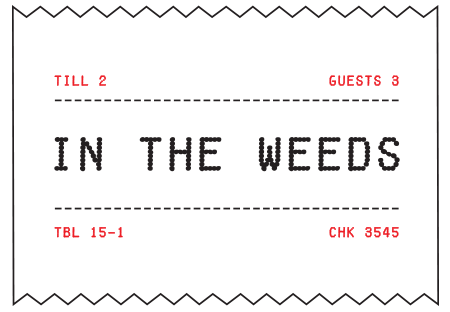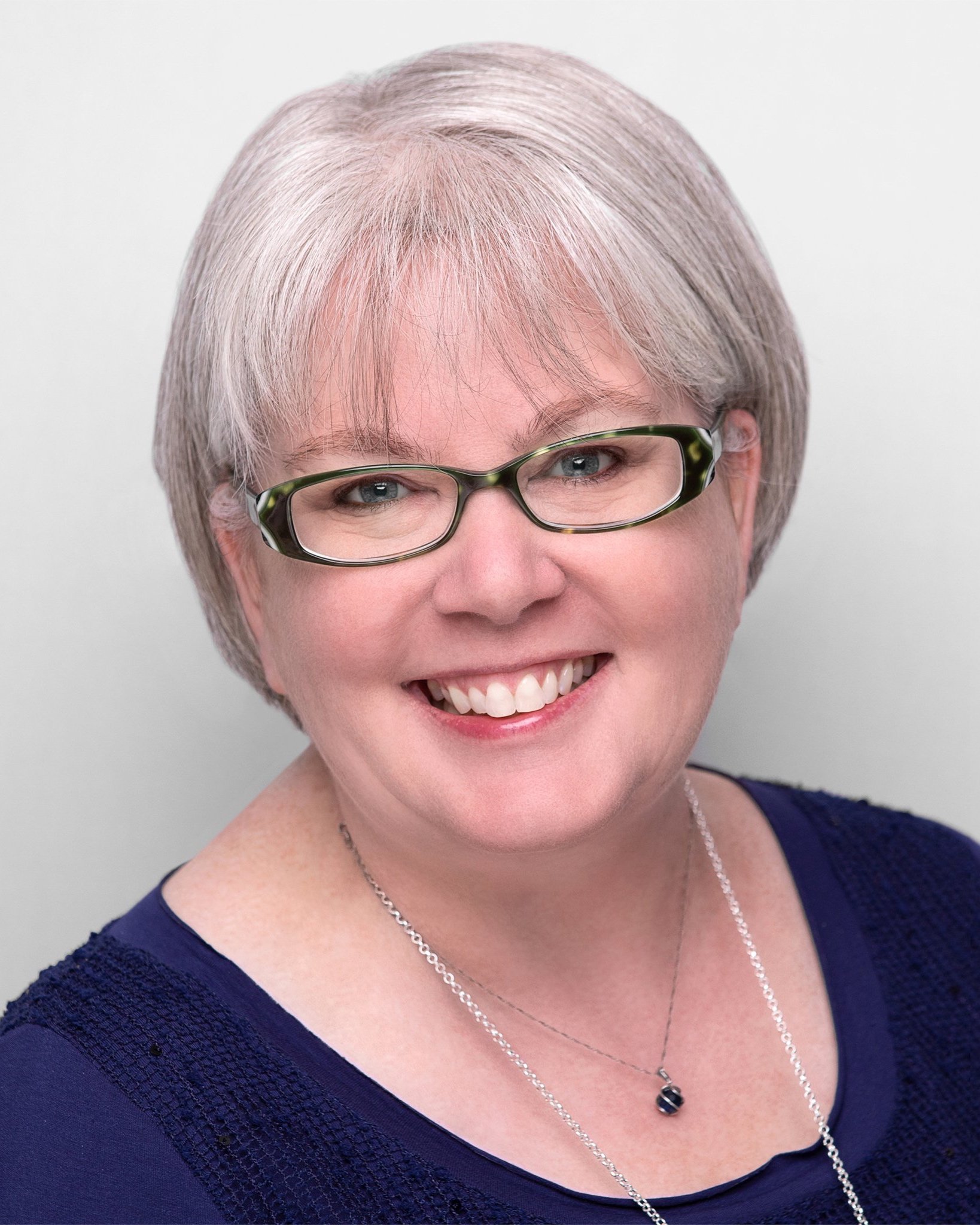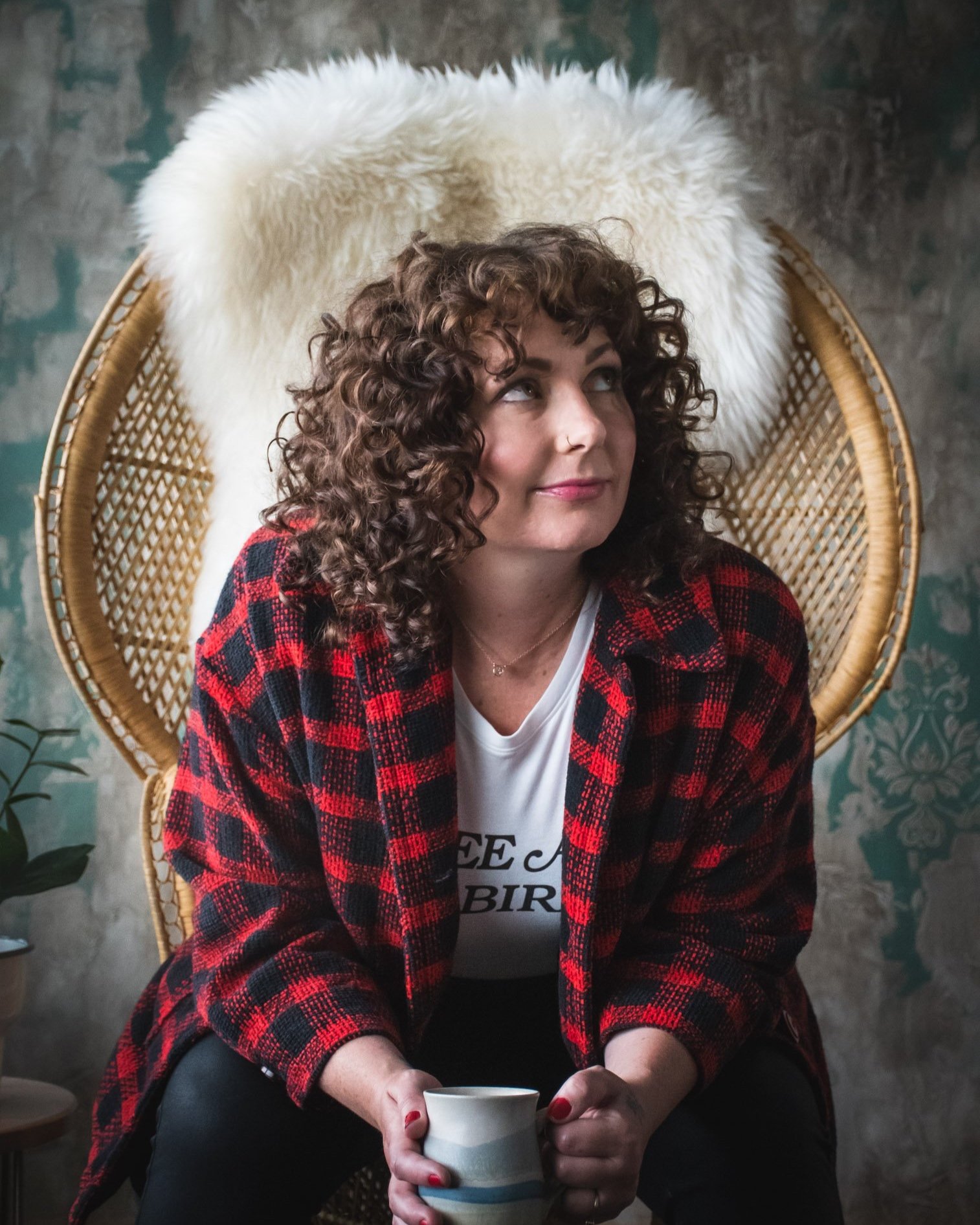Kim’s Kitchen ft. Sylvia Cheverie
In the “Kim’s Kitchen” series, ITW Board Member and Tacit Knowledge founder Kim Silverthorn interviews a member of the Edmonton hospitality community - eager to learn more about their own journey with mental wellness in the workplace.
In this feature, Kim sat down with fellow board member and owner/founder of Chartier Restaurant, Sylvia Cheverie.
Kim
Hi Sylvia – tell us a little the business you are running.
Sylvia
I am one of the managing owners of Chartier Restaurant (in Beaumont) and Mother Bakery (in Nisku). Chartier has been open for about 8 years, and Mother Bakery is a newer venture. We started making loaves of bread in our kitchen at Chartier as soon as we opened our doors. We worked really hard to perfect the sour dough loaf, which is the heart and soul of the donuts, croissants, cookies, and confections we also make. It just got to be so popular and organically grew to the point where we had seven people working in about 400 square feet of kitchen space in the restaurant. So, we found a beautiful space in Nisku, and Mother Bakery has been open since May of 2023. We’re able to do wholesaling and we’ve expanded our reach beyond just the four walls of Chartier
Kim
How big is your Chartier team?
Sylvia
Right now, we have 62 people on our staff. Because of the nature of our business, we do have a lot of people that only work twice a week. So, its not like we have 62 full-time people, but we are responsible and proud employers of 62 incredible humans.
Kim
I love that. It takes a lot to run something like that doesn’t’ it?
Sylvia
Yes, because behind the scenes there is a lot going on. There are a lot of moving pieces. We do quite a bit of catering and special events and farm dinners. We have to make sure that we have enough people in our Chartier family that we pull inwhoever we need to fit the role that we have that week. So, it makes for a lot of diversity within our group of employees. We have multiple people who work front-of-house (servers, hosts) and back-of-house (chefs) and multiple roles within front of house and back of house. So, lots of our team members are jacks of all trades, just it's really nice.
Kim
How long have you been in the business?
Sylvia
My very first real job was in hospitality. I was a supervisor at Dairy Queen when I was 15 years old. Ever since I was juggling serving, hosting, managing, and bartending jobs all at once. At one point, I was working at four different bars and restaurants just to fill up my schedule. But, at the time, I decided I wanted to do something different. So, I went to NAIT and I got my marketing diploma and I started working at an advertising agency and did some freelance social media marketing work. Then, in2015, Darren and I were at a point in our life where we felt like we had a good skill set. His background's also in hospitality and we thought, “Okay, we don't really have anything to lose.” We just needed to know if we could do it. And Chartier was always our dream that we talked about. So, we did a successful Kickstarter campaign that helped kick off Chartier as we know it. We have a lot of really loyal clients that have been with us ever since the Kickstarter - ever since we were just an idea, and they've stuck with us through every transition.
Kim
That's amazing. You grew fast and you grew strong. Would that be fair to say that you became this great success very quickly?
Sylvia
Yes - in our first year, we went from just being the small restaurant in Beaumont to being named Avenue Edmonton’s (now called Edify) Best new restaurant and best French restaurant. And we made it into Air Canada's En Route magazine. Our business changed overnight when those articles came out. We went from being quiet and humble - just hoping that we get more people - to being inundated with attention and customers. It was wild.
Kim
Incredibly successful and well-deserved. But that's got to take a bit of a toll on your life. What did you find as far as your mental wellness was concerned?
Sylvia
It was incredibly taxing - not only from just a pure time and energy commitment (as with any entrepreneur, your time is the most valuable currency). There were two parts that caught me off guard. Number one was the review process. Food and beverage is successful based on lists and judgment. There are very few industries that get the same amount of feedback and reviews as ours. They can be positive and that can work in your favour - or it can be incredibly negative, which debilitated me. There were some reviews that felt like they were reviewing me and rejecting me, because my identity is so tied to the business. So, in the first four years, every time a negative review came in, it would destroy me. It took a long a lot of hard work to disassociate myself from the reviews and to remember that people have sometimes started their review well before walking through the door. There are so many factors that go into whether somebody enjoys their time with us. Some of that is in our control, and some of it is not. People are going to walk through the doors with everything that happened to them that day, that week, that month. I can't be responsible for that. There are tangible outcomes in the restaurant I can be responsible for and learn from. We're human and we're prone to human error. We're going to make mistakes. But I had to separate what I was willing to take ownership of and when I had to say, “If you're willing to say these things about another human and another set of humans, something hasn't gone well in your world”. Well-adjusted humans don't go out of their way to make other people feel like shit unnecessarily. But there are reviews that come in that are meant to do exactly that. They don't provide any learning, they don't provide any insight. There are no teachable opportunities. They are just mean, ill- spirited reviews that are meant to bring somebody down. I had to have empathy. I had to shift from being hurt to thinking, “Wow, if somebody is willing to go out of their way to say these things, imagine how hurt they must be”
Kim
To take that hurt and that rejection away is to give yourself a little distance and space from the reviews. But to also find it in your heart to have compassion and forgiveness for that person - not holding it against them, but wishing them the best and moving on – that takes a lot.
Sylvia
I have this sign off that I do when we get those emails or conversations. It always says “sending you love and light”. I don't care how bad you've hurt me, I'm still going to send you love.
Kim
You made sure the reviews didn't change who you were in your heart. You are still that good person that you were when you first had the idea about the restaurant - you are still walking tall and being able to have dignity and honor so you can sleep at night – you are not carrying the negativity or the anger or the hurt – you are allowing your own strengths and your own capabilities to shine through. And that's an incredibly difficult thing for anybody to be able to do when they are caught off guard with something negative. I think that the readers are going to enjoy hearing about what they can do to cope as well. To know they need to come back to who they are and who they want to be in the face of hostility or negativity. To let that be their compass and guide.
Sylvia
There's a level of defensiveness that naturally comes. And when you're defensive, you lash out and you do weird things. I wasn't always at this point where I could try to channel back to a place of empathy and understanding. I definitely learned from my mistakes, and I know how bad that made me feel. It didn't feel good to be defensive and it didn't feel good to be angry or get into an online battle. But if I forgive myself and I forgive them and I take what I can learn from it, and then I move on and don't think about it again, that's the only way that I can survive.
Kim
I love that. Thank you. Now, you had said there was a second thing?
Sylvia
I had done management and leadership before or we opened Chartier, but not ever to this extent. Leading 62 people was not something that I had any frame of reference for. The amount of time and energy required to make sure that those 62 humans are feeling good within the four walls of the business, that's 98% of my job. A very small percentage of my job is actually serving guests. Most of my energy is dedicated to my team. Their lives have their own ups and downs and challenges that I have to help them navigate to some degree. And we have a lot of first-time employees - this is their first job ever. They're also learning to navigate what that even looks like. The input required on the HR front caught me off guard. It's also the most rewarding thing about my job. The finance side comes and goes. There are good months and bad months. But we've learned (especially over the last three years!) there is a lot that you can't control. We never factored a pandemic into our business plan, and I can't imagine that many other businesses did. If we gauge our success by the health and culture of the team that we’ve created, we have so much more control. I can see a direct result from my input into that area, and it is incredibly rewarding when you see growth and change and positivity.
Kim
Can you give the readers a little bit of an idea or suggestions on how do you do that? What do you do with your team or for your team to focus on their wellness and growth?
Sylvia
It's honestly just time. It's spending time to check in, to connect, to give feedback - not just when things aren't going well, but also recognizing when things ARE going well. There's going to be people in the business that are high performers that need a higher level of recognition and touch points so they know that they're doing a good job. And when things aren't going well, you also have to be willing to help to create opportunities in those hard situations. We try really hard as a leadership team to incorporate a whole-model approach - we don't want to be seen as perfect people, who always know exactly what to say. I try really hard to be upfront about my mistakes in front of my team and to admit fault and to talk about when I'm struggling. If I have a therapy appointment, I won't say I have a doctor's appointment. I very openly say I have a therapy appointment today at 1:00. I think that starting the conversation by being a little bit more open as a leader (not just expecting the team to come to me) has been incredibly helpful. We also do regular check-ins called pre-shift. Before we start a busy shift together, we do a one word check in and it has to be an emotion. When people say “good”, I ask for more about why they feel good/what are the things that are making them feel good. And If somebody is feeling tired, we let them know that’s okay and we will support them in their section more. Sharing where their starting point is allows us to tailor their evening a little bit differently – to give them support where they need instead of waiting for them to inevitably fail because they're trying so hard to push aside all these things that are bothering them to put on this smile in order to make sure that somebody's anniversary dinner goes well.
Kim
That's a wonderful formula for taking care of your family, your team. I can see why it takes a lot of time and energy. My guess is that you get some of that back from your team with appreciation and loyalty. On the good days they're working at their top capacity as much as they possibly can, because they know they're safe there.
Sylvia
We had a tough go of things this past year - we had to make the announcement that we were closing our doors as of September 30th - our team could have very easily jumped ship. Every expert we talked to said to be careful about being too open about what was going on, because we would leave ourselves at risk of our team immediately looking for another job and leaving us preemptively. We knew that we were in a vulnerable position. But almost every single one of them committed to being with us - ride or die - until the end. At the time, we had 56 employees and 54 of them stayed with us.
Kim
You've created a culture of humanity, right? Of understanding imperfection, accepting it and embracing it. I'm sure that they all see you as the boss and as the leader of the business, but they also see you as an equal human being to them. Any last thoughts or suggestions that you would give to another leader or front-line worker that's out there thinking about their mental wellness?
Sylvia
The tool that I use most often is empathy - having an empathetic approach to the customers that I serve, understanding that they are a culmination of everything that has happened to them in their day, in their week, in their month - and empathy for myself because I can only do my best. Some days my best is going to be incredibly high performing and precise and eloquent, and some days my best is going to be more of a dumpster fire. I am a culmination of all of the good and bad.
Kim
Absolutely. I think you make such a good point, Sylvia - that you're not just professing this for your customers and the public. You're not just professing this for your staff. You're not living a hypocritical mentality. You are applying the same principles, that same empathy, that same forgiveness, that same acceptance and letting go to yourself. You can be resilient; you can get through it because you're in that mentally functional zone.
Sylvia
And I know that it's not going to be that way forever. Just because I do a bad thing or make a bad mistake, it doesn't mean that I am now a bad person. I am not my mistakes. I am not my lapses in judgment. I am a whole person which includes these things. But overall, the balance will weigh out. The good and the bad.
Kim
I can hear you cheerleading that to your team!
Sylvia
100%.
Kim
Thanks so much for your time today, Sylvia – you have given everyone a lot of insight into the vulnerability and strength that it takes to be a success in this industry!


